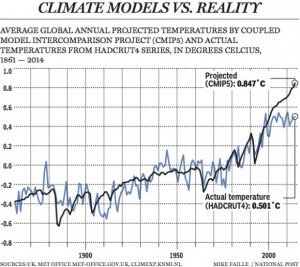Free will an illusion, says article.
The report in the Independent says that:
Volunteers in the study were asked to sit in front of a screen and focus on its central point while their brains’ electrical activity was recorded. They were then asked to make a decision to look either left or right when a cue symbol appeared on the screen, and then to report their decision.
The cue to look left or right appeared at random intervals, so the volunteers could not consciously or unconsciously prepare for it.
The brain has a normal level of so-called background noise; the researchers found that the pattern of activity in the brain in the seconds before the cue symbol appeared – before the volunteers knew they were going to make a choice – could predict the likely outcome of the decision.
This notion, that rational consciousness is making the decisions, has been shown to be bunk, and for a long time. But this result does not mean we have no free will. What it shows is that “rational consciousness” is the story teller; the part of our brain that rationalizes decisions we have already made. Rationalization is narratization, and narratization is just story telling. Humans tells stories the same way birds make nests, or beavers make dams, or bears turn over stones looking for ant nests.
Nevertheless, the part (or function, or activity) of our brains that tells the story to others and to ourselves what decision we have made is not the part that makes the decisions – but it is the part that thinks it is making the decision because it is the part that commands language.
Language confuses us into thinking that the part that commands language commands the brain, but it is quite the reverse. The human mind existed before language and the function of our mind that decides/acts/chooses existed before (and must have existed before) the capacity to tell a story about our acting/decision-making.
All of this fascinating matter is discussed extensively in Tor Norretranders’ The User Illusion.
Not merely does consciousness (understood as the narratizer) not make the decision, it actually fakes the record! Milliseconds after the part of our mind that decides has decided, consciousness interposes its memory of having decided into the record earlier than it actually was aware of the decision. Your “consciousness” – your media department and record bureau as it were – is like the journalist who pretends that it has made the decision, but non-linguistic functions of your brain have actually done so.
This amazing result has been shown by what I call “electrode science”. It has been completely replicated and does not depend on any theory of the mind as a non-material substance.
So, if “consciousness” -the person who remembers and tells stories – does not make the decision, who does? We do. It is just that the press office of our minds is not the executive function.
That our executive function is not “conscious” – able to tell stories – merely tells us that the ability to duck the thrown spear, or catch the teacup before ithits the floor, is prior to being able to talk about it.
The same point is made, at much greater length, in several books:
Iain McGilchrist, the Master and his Emissary
McGilchrist, a psychiatrist and man of letters, discusses the absurd over-emphasis on modern culture of conscious (left-brained) thinking.
Julian Jaynes, the Origin of Consciousness in the breakdown of the Bi-Cameral Mind,
This was the first book to take seriously the division of the mind into left and right hemispheres and to ask profound questions about the significance for human cultural evolution of the separate functions of the hemispheres.
While McGilchrist differs from Jaynes in thinking that consciousness (the narratizer function) has not emerged from the breakdown of the bi-cameral (two-chambered) mind, he does agree with Jaynes that we have sppressed too much the non-linguistic aspects of our beings, by disparaging myth, symbols, and and other non-linguistic portions which feel and understand, but cannot speak through the press office.

